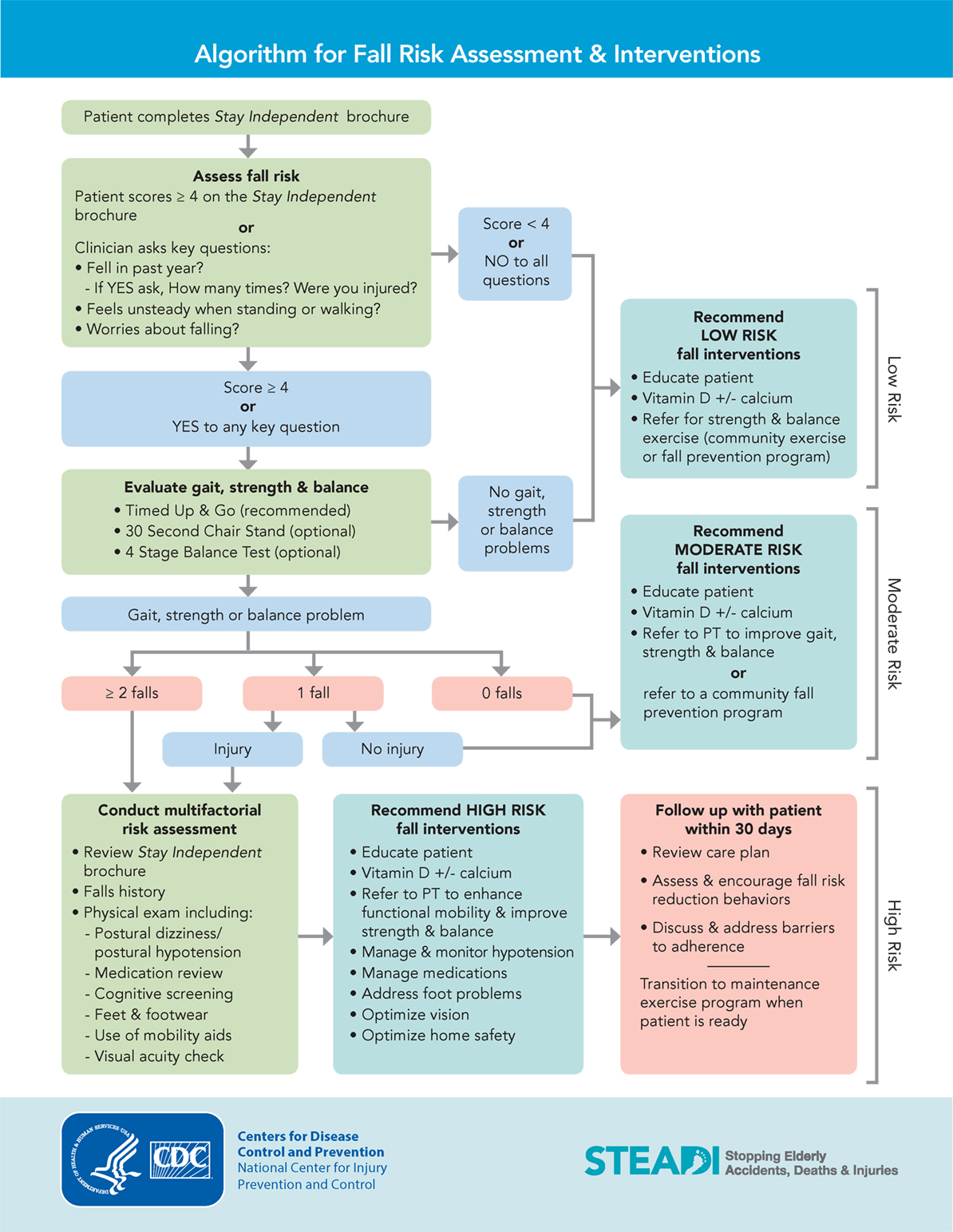The Main Principles Of Dementia Fall Risk
The Main Principles Of Dementia Fall Risk
Blog Article
Dementia Fall Risk Fundamentals Explained
Table of ContentsOur Dementia Fall Risk PDFsDementia Fall Risk Fundamentals ExplainedFacts About Dementia Fall Risk RevealedHow Dementia Fall Risk can Save You Time, Stress, and Money.The Best Strategy To Use For Dementia Fall Risk
You could be nervous because you've had a loss prior to or because you've noticed you're beginning to really feel unstable on your feet. You could have observed adjustments to your health and wellness, or simply seem like you're decreasing a little. Whatever the factor, it isn't uncommon to end up being cautious and lose confidence, and this can quit you doing the important things you made use of to do and make you really feel more isolated.If you have actually had an autumn or you have actually started to feel unsteady, tell your doctor even if you feel great or else. Your doctor can check your balance and the method you walk to see if improvements can be made. They may be able to refer you for a drops risk analysis or to the falls prevention service.
This details can be acquired through meetings with the person, their caretakers, and an evaluation of their clinical documents. Begin by asking the specific regarding their history of drops, consisting of the regularity and circumstances of any kind of recent drops. Dementia Fall Risk. Ask about any kind of movement issues they may experience, such as unstable or difficulty walking
Conduct a detailed review of the person's medications, paying certain focus to those recognized to boost the threat of drops, such as sedatives or drugs that lower blood stress. Figure out if they are taking multiple medicines or if there have been current modifications in their medication regimen. Review the individual's home atmosphere for potential dangers that could enhance the risk of drops, such as bad illumination, loosened carpets, or lack of grab bars in the restroom.
Some Known Questions About Dementia Fall Risk.
Guide the person through the fall danger assessment form, describing each question and taping their feedbacks accurately. Compute the total danger rating based on the actions offered in the assessment form.
Frequently check the person's development and reassess their threat of drops as required. Offer continuous education and learning and assistance to promote safety and lower the danger of falls in their daily living tasks.
Many research studies have actually shown that physical therapy can assist to minimize the threat of dropping in grownups ages 65 and older. In a brand-new research (that considered falls risk in females ages 80 and older), researchers determined the economic impact of selecting physical treatment to protect against drops, and they discovered that doing so saves $2,144, consisting of all the concealed prices of your time, pain, missed life events, and the dollars spent for services.
Some Ideas on Dementia Fall Risk You Should Know
Analyzing your equilibrium, stamina, and walking capability. A home security analysis. Based on the analysis results, your physical therapist will certainly make a strategy that is customized to your details needs.
Older grownups who have difficulty walking and talking at the very same time go to a greater danger of falling. Dementia Fall Risk. To help boost your safety and security throughout day-to-day activities, your physiotherapist might make a training program that will link test you his explanation to keep standing and strolling while you do an additional task. Instances consist of strolling or standing while counting in reverse, having a conversation, or lugging a bag of grocery stores
Your physical specialist additionally can recognize which activities you need to stay clear of to remain secure. Community-based falls prevention programs aid individuals to: Minimize their worry of dropping. Set goals for increasing their exercise. Make their homes much safer. Exercise extra to increase their toughness and balance. These programs usually are led by volunteer trains.
The 3-Minute Rule for Dementia Fall Risk

Measles, or rubeola, is a very transmittable, intense viral contagious condition triggered by the measles virus. Some people think of measles as just a breakout and high temperature that improves in a few days; nonetheless, measles can cause major health difficulties, especially in youngsters younger than 5-years-old. The best defense against measles is the measles, mumps, and rubella (MMR) vaccination.
Autumns are a typical source of injury among older adults. According to the CDC, in one year alone, fall-related injuries added to over $50 billion in medical costs (Dementia Fall Risk). In healthcare facility settings, older adults go to particularly high threat of falls because their decreased wheelchair from being restricted to an area or bed.
Dementia Fall Risk - Questions

She has a case history of seizure problem and high blood pressure. She is obtaining an IV infusion and taking Gabapentin and Lasix. She has no background of drops, her stride is stable, and she nullifies with no issues. The previous nurse states that she asks for support to the shower room when she needs to go.
Instances of typical autumn interventions/measures include: Guaranteeing a patient's important things are available. Putting the individual's bed rails up with the alarm system on. Aiding a client while they're rising from bed. Beyond comprehending how to utilize the Johns Hopkins Fall Danger Evaluation Device, it is essential that centers include its use into an extra pop over to this web-site extensive fall avoidance plan.
Report this page